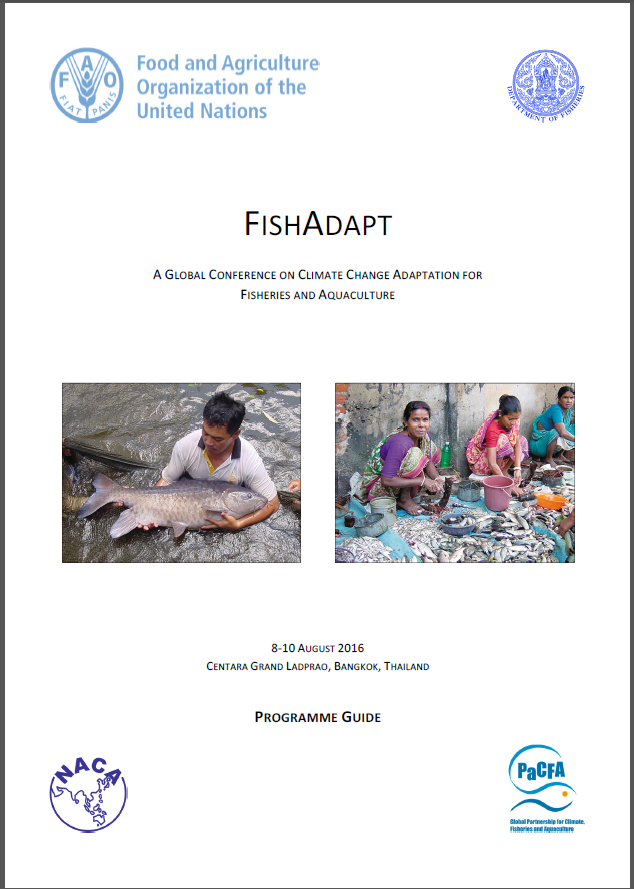 On August 10, 2016, some 20 participants joined TBTI special session on Climate change in small-scale fisheries: Vulnerability, adaptive capacity and responses at FishAdapt: Global Conference on Climate Change Adaptation for Fisheries and Aquaculture. Fish Adapt conference was held in Bangkok, Thailand from August 8-10, 2016. In the session, five TBTI members presented their research on different perspectives on climate changes. The session aimed at enhancing understanding about the vulnerability of small-scale fishing communities and how they respond to different types of change and stressors. Discussion was also held about factors, conditions, instruments and tools that enable small-scale fishing communities to cope and adapt.
On August 10, 2016, some 20 participants joined TBTI special session on Climate change in small-scale fisheries: Vulnerability, adaptive capacity and responses at FishAdapt: Global Conference on Climate Change Adaptation for Fisheries and Aquaculture. Fish Adapt conference was held in Bangkok, Thailand from August 8-10, 2016. In the session, five TBTI members presented their research on different perspectives on climate changes. The session aimed at enhancing understanding about the vulnerability of small-scale fishing communities and how they respond to different types of change and stressors. Discussion was also held about factors, conditions, instruments and tools that enable small-scale fishing communities to cope and adapt.
The presentations drew examples from Asia (e.g. Bangladesh, India), Africa, Europe and elsewhere to contextualize the impacts of climate change on fishing communities, their respective adaptation strategies and long term implications on their resilience.
The excerpts of the talks are as follows:
- Living close to coast, small-scale coastal fishing communities face recurrent hazards, which are coupled with social demographic and economic drivers that altogether transform the effects of hazards into disaster and make corresponding changes in human well-being and environment of fishery system;
- Fishers’ resilience has three dimensions: coping, adapting and transforming. Fisher knowledge is important for enabling a small-scale fishery to persist and adapt. Fisher knowledge is itself resilient and contributes to the overall resilience of the fishery social-ecological system;
- The results of fishers’ adaptation strategies have been mixed with virtually no significant outcomes for the long-term sustainability of fishery system. Implementation of SSF Guidelines could potentially strengthen community-based adaptation of fishers amidst rapid social-ecological change;
- Global environmental change could challenges the food and nutrition security of fishing communities in Africa. To withstand these challenges, coastal communities need to be prepared to adapt to change and ready to respond effectively and in timely manner; and
- Gender relation and equality can be impacted by global environmental changes. As such, it is urgent to make the gender dimension and equality issues part of the climate change debate, as a way to guarantee equal access to economic and natural resources, and improve life conditions for women in coastal areas.
Presenters and talk titles are listed below:
Fikret Berkes: “Adaptive capacity in small-scale fisheries: Role of resilience and fisher knowledge”
Mahmud Islam: “Vulnerability of coastal fishers to disasters in Bangladesh”
Moenieba Isaacs: “I-ADApT a tool for coastal communities to respond to global environmental and food security challenges in Africa”
Katia Frangoudes: “Bringing gender dimension into the debate about ocean and climate change”
Prateep Nayak: “Can FAO Small-Scale Fisheries Guidelines (2015) promote better community-based adaptation to rapid environmental change?”
If you are interested in further information on the talks from the session, visit FishAdapt conference website http://www.fishadapt.com/modules/conference
















